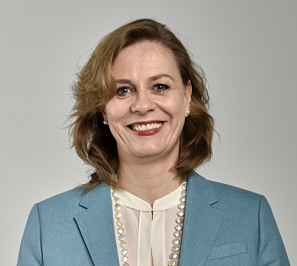Last week, the United Nations General Assembly proclaimed 2022 the International Year of Basic Sciences for Sustainable Development (IYBSSD). An initiative championed by the International Union of Pure and Applied Physics (IUPAP), which celebrates its 100th anniversary next year, the international year will be organised under the auspices of UNESCO.
If COVID-19 has taught us anything, it is the importance and impact of fundamental research. It is therefore timely that 2022 should highlight the role of basic science in support of sustainable development. Promoted by IUPAP, under the energetic leadership of former CERN Council President Michel Spiro, IYBSSD is an opportunity for us to raise awareness of the practical benefits that our research brings.
It is expected that IYBSSD will be kicked off with an opening conference at UNESCO in Paris in July 2022, and conclude with a closing ceremony at CERN one year later. Its focus will be the 2030 Agenda for Sustainable Development, and how understanding nature at a fundamental level not only helps to make the Agenda’s goals achievable, but also promotes sustainable policy making for the common good and technology development that can advance the implementation of the agenda.
CERN, along with 26 other scientific organisations, supported IUPAP’s initiative, and we are looking forward to being part of a rich year of activities showcasing the value of basic science for society. CERN has a strong story to tell. Since the adoption of the Sustainable Development Goals by the full membership of the United Nations in 2015, we have been working actively, often in partnership with other organisations, to find ways to enable expertise and know-how from particle physics to support the Agenda. Among the most recent examples: this year’s Webfest brought together young talent from across the world to promote the Goals; the new Technology Impact Fund provides a platform for bridging the gap between the technology developed for research at CERN and its potential applications to address societal challenges; and CERN’s COVID Airborne Risk Assessment (CARA) tool has led to the Organization working with the WHO to develop a standardised algorithm to quantify airborne COVID-19 transmission risk in indoor settings.
CERN’s engagement with sustainable development, however, is not new. The Organization has always striven to make its technologies and expertise available to society as a whole. Our work on medical imaging, dating back to the 1970s, is a good example, while CERN’s collaboration with the United Nations satellite centre, UNOSAT, celebrated its 20th anniversary this year. Ongoing activities for medical applications, educational programmes and capacity-building initiatives for countries with developing particle physics communities all contribute to advancing sustainable development through the channel of basic research. Many are the subject of active Knowledge Transfer initiatives, while CERN’s Environment Reports, the second of which was published this year, also highlight CERN technologies with the potential to promote environmental sustainability.
We look forward to an exciting year celebrating the value of basic sciences for the global common good and the future of our world, and hope that many of you will join the celebrations.

